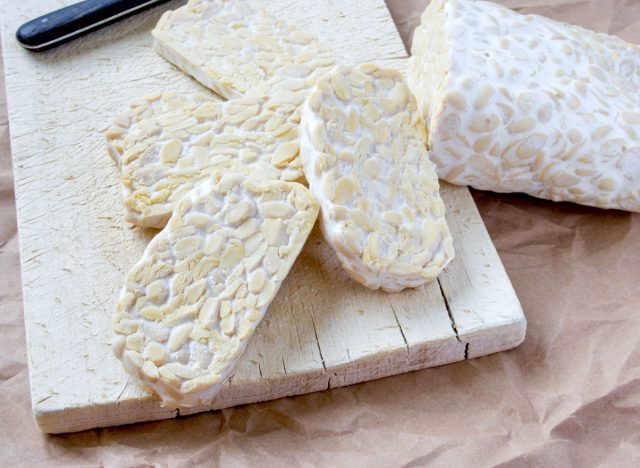Processed Meat Substitutes May Be More Harmful Than Helpful, New Study Suggests

You may opt to eat a plant-based diet for a variety of reasons, including the fact that you want to consume food that is both delightfully delicious and, of course, nourishing. However, a new study has found that certain meat substitutes are lacking key nutrients that your body needs.
The study from Chalmers University of Technology in Sweden, which was published in Nutrients, involved taking a look at 44 different kinds of meat substitutes on the market. The varieties were primarily soy and pea protein-based, but there were also options that included fermented soy products like tempeh, and mycoproteins, which are proteins derived from fungi.
The researchers found that the various meat substitutes had a range of nutritional content. They also noted that the estimated amount of both iron and zinc that could be absorbed into the body from these foods was low, due to phytates, which are anti-nutrients.
Read on to learn more about the effect of some of these meat substitutes, and for more health tips, check out 5 Coffee Habits That May Be Shortening Your Life.
Plant proteins may lack certain nutrients

“Not all proteins are created equal,” Catherine Gervacio, RD, registered dietitian and nutrition contributor for Living.Fit, tells Eat This, Not That! “Despite the fact that plant-based proteins have less fat, calories, and cholesterol than meat products, they also lack certain qualities. This study presents one of the major qualities that plant-based proteins lack.”
Gervacio explains that “Meat substitutes are sourced from plants,” and “Plants naturally contain phytates to store phosphorous for their reproduction and growth.” While this “is beneficial for plants, phytates are popularly known as anti-nutrients because they bind to certain nutrients to make them less absorbable, especially calcium, zinc, and iron.”
Gervacio notes that “This is the reason why plant-based proteins or meat substitutes are known to carry non-heme iron (the less absorbable type of iron) because phytates bind to it.”
However, fermented products may be better

To ensure that you’re choosing nutritious plant-based meat substitutes, Gervacio says, “As said in the study, fermented products like tempeh are excluded from these plant-based foods and meat substitutes because phytates are broken down via fermentation. Miso is another kind that has gone through fermentation and has the same quality as tempeh.”
“Choosing the best plant-based foods can be tricky, especially if iron and zinc are some of your main concerns,” Gervacio adds, while noting that, “However, there are products that have been fortified with iron and/or zinc to meet daily requirements like certain breakfast cereals or non-dairy milks.”
Eating animal products every now and then can be helpful

Beyond that, Gervacio says, “I still highly recommend eating a well-balanced meal that has a combination of animal and plant-based proteins. While animal proteins contain cholesterol and fat, they can supply helpful amounts of iron and zinc to the body. Plant-based foods often lack the ability to supply absorbable iron and zinc, but they can reduce blood cholesterol and have lesser calories. Both can fill in what the other lacks.”
Finally, Gervacio points out that “For those who are following a plant-based diet, it is still best to talk to a professional to find out if an actual diet lacks certain nutrients and if supplementation is necessary.”









